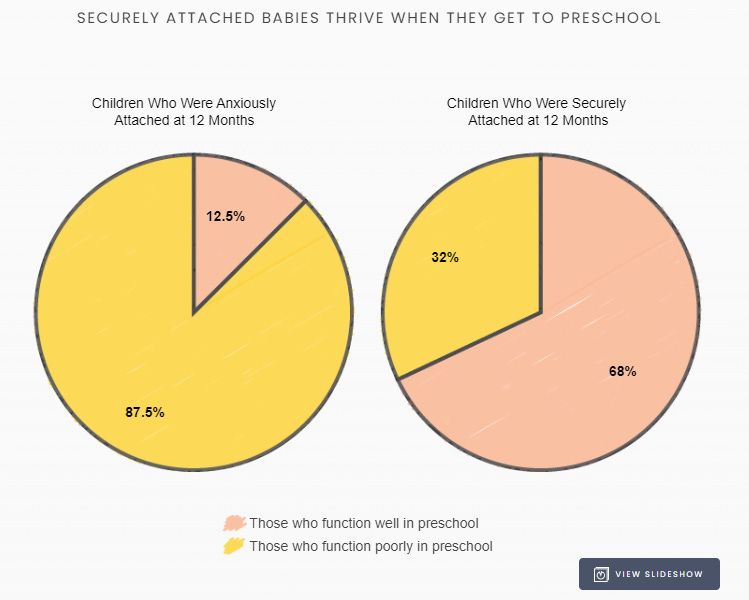A Demonstrable Solution to the Poverty Deficit in Education
The Education Wars Part IX
"An investment in knowledge pays the best interest." -Benjamin Franklin
Billions and billions of dollars are thrown away (if not used to terrorize children) because we fail as a society in the simple task of differentiating between primary and secondary variables. It sometimes feels as if there is no will to do anything at all the right way in education. From TechCrunch:
In 2014 the Gates Foundation backed InnovateNYC so it could work with Johns Hopkins University to figure out a better way to measure the efficacy of new technology in the classroom. One of the companies that InnovateNYC is working with, Kinvolved, is an attendance improvement solution that targets students from disadvantaged backgrounds who are chronically absent from school.
Do you wonder if they even talked about the Benjamin Bloom problem in the boardroom before setting all that money on fire?
Source: Venture Investors Put $2 Billion Into the Blackboard Jungle (Techcrunch)
Oddly, I've told a few dozen VC's about how I built two schools on $16,000 in capital with around 4-5% of approximately 600 graduates going to MIT, six presidential scholars out of the first 150 graduates, and at least 5 gold medals at the International Mathematical Olympiad (from a city that was not producing any students competing at the highest levels of even national competition). The conversation never goes anywhere unless you count questions about capturing federal dollars as "goes anywhere".
Consider this story from Paul Tough's excellent book Helping Children Succeed.
In 1986, in a few of the poorest neighborhoods in Kingston, Jamaica, a team of researchers from the University of West Indies embarked on an experiment that over the past three decades has done a great deal to demonstrate the potential effectiveness of parent interventions. The experiment involved the families of 129 infants and toddlers who at the beginning of the study showed signs of delay in their development, either physically or mentally. The families were divided into four groups. One group received hour-long home visits once a week from a trained researcher who encouraged the parents to spend more time playing actively with their children: reading picture books, singing songs, playing peekaboo. A second group of children received a kilogram of a milk-based nutritional supplement each week. A third received both the supplement and the play-supporting home visits. And a fourth, a control group, received nothing.
The intervention itself ended after two years, but the researchers have followed the children ever since. (They are now in their early thirties.) The result: the intervention that made a big difference in the children’s lives wasn’t the added nutrition; it was the encouragement to the parents to play. The children whose parents were counseled to play more with them did better, throughout childhood, on tests of IQ, aggressive behavior, and self-control. Today, as adults, they earn an average of 25 percent more per year than the subjects whose parents didn’t receive home visits; by a variety of measures, including wages, these formerly delayed infants have now caught up with a comparison group of their peers who didn’t show any signs of delay in infancy.
http://www.paultough.com/helping/web/
It gets better!
Parents who are under a lot of stress, because of poverty or other destabilizing factors in their lives, are less likely than other parents to engage in the kind of calm, attentive, responsive interactions with their infants that promote secure attachment. But what excites many researchers today is the emerging understanding that those behaviors can be learned. It appears to be relatively easy to support and counsel disadvantaged parents in ways that make them much more likely to adopt an attachment-promoting approach to parenting. There’s a chance, in fact, that certain successful parenting interventions promote attachment even when they are not trying to. It may be that part of what produces positive results in health-based interventions like the Nurse-Family Partnership, or read-with-your-kids programs, or even the Jamaican experiment, is that they involve home visitors urging parents to play and read and talk more with their infants — to engage in more serve-and-return moments, in other words — and those up-close parental interactions may have the effect of promoting secure attachment, even if attachment was not the intended target of the intervention.
Just to be clear: The average salary of a social worker is around $50,000. Adding benefits and other costs and let's assume some training and other expenses and perhaps that tally reaches $80,000. One worker might be able to cover the needs of 16 families, which might have 25ish such infants (keeping this number low to be conservative in the multiplication of benefits) who might produce $350,000 (captured in earnings) more over their lifetimes.
The 2.5 year multiplier in the cost line is also conservative given that,
Some of that time in the Kingston experiment was spent on education found to be unproductive. We could cut that time out.
Once the seeds of better educational culture are planted in communities, they will be fostered and shared within community networks, lowering the need for further investment.
That's greater than a 40x return on capital! You probably don't even need to capture the 2.5% (one-fortieth) of the added income in taxation to justify (pay off) the investment. Just the savings on (other) educational needs, vocational training, lower social costs (courts, prisons, welfare, etc.), and additional reductions in negative externalities of poverty (health and violence) down the road justify the investment many times over (Dr. Montessori was right!).
Even if my guesstimates above are off (and we can only guess somewhat at today's results in America), there is so much cushion that the results are still astronomical.
In a healthy society, with a stable and well distributed economy, the entire solution might take place even without government funding. Though if this family-centric educational intervention isn't the collective action solution for a government, there isn't a whole lot of justified domestic expenditure at all.
Meanwhile, we teach most of our brightest minds to think either within political contexts or to find ways to use shiny new silicon tools to do what? The SAT gap between the rich and the poor grows wider decade by decade (also covered in Tough's writings) while partisans virtue signal their leadership's latest platitude.
What's Stopping Us?
We are still not doing education right despite well-documented solutions staring us in the face. Have we always been this confused about the right and wrong ways to achieve the results we say that we want to achieve?
You might think that the "family-centered early intervention" solution that draws the parents into better child-rearing habits satisfies both the conservative and liberal value sets, no matter how ideologically rigid. But perhaps that's a problem, politically speaking? If the goal of education is to render everyone a fearful drone, then the only solutions that stand the test of the political arena are the ones that satisfy no sets of broadly defined educational values, but act as a politically divisive partisan wedge. The (non-)solutions we are sold are typically those with catchy enough slogans to satisfy political partisans while handing more power to unelected bureaucrats.
Or maybe the people in charge have a different set of goals entirely?








Thank you for this!!!! We are far far from perfect parents, but I can attest to the importance of early play and reading first hand. We did it from day 1 - literally, we took books to the hospital and read to our babies there.
I’d love to say it’s because we just knew how important this was, but in reality I was terrified one of our babies would be autistic, so I did a ton of research on early intervention and realized it would help any baby - lots of interactive reading and non-verbal “conversations” with facial expressions/ sounds/ body language, as well as motor planning. My husband went along with it more because he’s always adored our kids and loves playing with them, and figured having some guidance from early childhood development research so long as it was still fun couldn’t hurt, not because he shared my mostly baseless paranoia.
Our 10 yo daughter has an IQ of 128, and our 8 yo recently tested at 140. Both have always had very advanced social-emotional skills.
The difference between their early development? Our now 8yo son was born unilaterally deaf. A language facilitator went to his daycare a few hours a week and read/ played/ taught him (and his classmates) to pay attention to sound from the time he was 6 months old. Our idiot state ended the program and replaced it with a far more expensive and completely useless “program,”so we pulled him quickly from the useless program and paid his old language facilitator cash to keep working with him. We almost get angry when people give my husband and I credit for his success considering his challenges. His language facilitator did the real work. He would not be where he is without her. Period.
I do find the challenges as a parent are never ending in accessing education and healthy development. Aside from all the relativism insanity, and Covid turn your curiosity and brain off to just comply with “mitigation” that physically can’t work that is impacting kids’ ability to develop logical judgement, we have educational infrastructure that caters to the mediocre. My kids go to an ACSI exemplary accredited Christian school (there are only 18 with that level of accreditation in the country) and their actual school is pretty good, but outside enrichment is a train wreck. Summer camps are dumbed down around here - even science camps. STEM in their school is legit, but outside nothing but low level arts and crafts projects. Most of the zoo/ science center based camps are still encouraging masking to “protect others” - it’s like they want to be sure parents know not to expect actual science. It’s gotten so simple, boring, and dumb. I am scared for my kids’ generation. How do we save this generation from being uncurious and simple minded when so many institutions are training them to be compliant ideologues rather than curious learners? How do I help my kids? Where have all the curious adults gone who can inspire curiosity in kids?
Thank you, Mathew. On point, as always. I will keep telling people to read your substack.